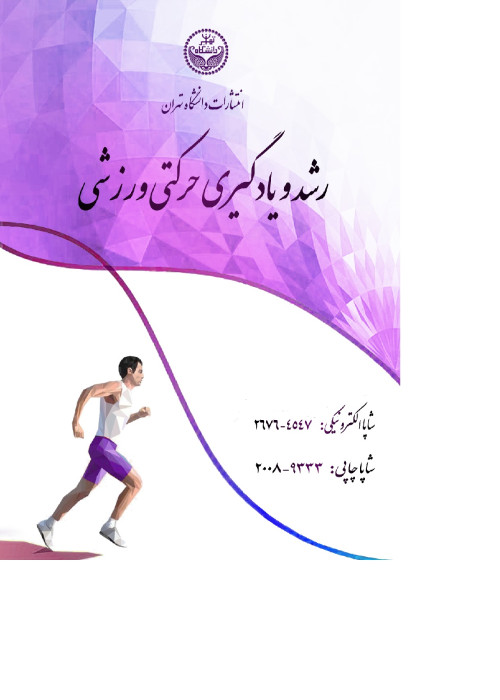Effect of Transitional Practice Schedule on Contextual Interference in Badminton Skills Learning (Long Service, Forehand Toss and Backhand Toss)
Author(s):
Abstract:
Contextual Interference is defined as interference in performance and learning that arise from practicing one task in the context of other tasks. Transitional practice is a kind of practice sequence that starts out with trials of large blocks; then moves to smaller random blocks، and eventually finishes with complete randomization. The aim of this study was to investigate the effect of ‘transitional practice schedule’ on contextual interference in learning three badminton skills. The research was quasi-experimental with three experimental groups. The subjects were 30 female students of physical education (age: 19±1. 3) from Urmia University who voluntarily participated in the study. They practiced three badminton skills (long service، forehand toss and backhand toss strokes) for ten sessions. In each session، each subject practiced 15 trials for each skill and totally 45 trials. The blocked group practiced in a blocked format. The random group practiced all three skills randomly in a way that no two similar skills would be repeated one after the other in each sequence. The transitional practice group practiced the first three sessions in a blocked format، the next three sessions with five random trials، the next three sessions with three random trials and the last session in an entirely random format. The groups'' performances were recorded in each session. After the ten sessions، the immediate retention test and after 48 hours with no practice، the delayed retention test was conducted. The data were analyzed by one-way analysis of variance with repeated measures (ANOVA). The results showed that in the acquisition stage، group differences were not significant (p=0. 48)، but the mutual reaction (practice sessions x groups) was significant (p=0. 001). In immediate retention test، only the difference between the block and random groups was significant (p=0. 005) and the blocked group performed better than the random group. In delayed retention test، both random and transitional groups performed significantly better than the block group (p=0. 001). Transitional group performed better than the random group and this difference was significant (p=0. 043).
Keywords:
Language:
Persian
Published:
Journal of Sports and Motor Development and Learning, Volume:5 Issue: 11, 2013
Pages:
5 to 21
magiran.com/p1158300
دانلود و مطالعه متن این مقاله با یکی از روشهای زیر امکان پذیر است:
اشتراک شخصی
با عضویت و پرداخت آنلاین حق اشتراک یکساله به مبلغ 1,390,000ريال میتوانید 70 عنوان مطلب دانلود کنید!
اشتراک سازمانی
به کتابخانه دانشگاه یا محل کار خود پیشنهاد کنید تا اشتراک سازمانی این پایگاه را برای دسترسی نامحدود همه کاربران به متن مطالب تهیه نمایند!
توجه!
- حق عضویت دریافتی صرف حمایت از نشریات عضو و نگهداری، تکمیل و توسعه مگیران میشود.
- پرداخت حق اشتراک و دانلود مقالات اجازه بازنشر آن در سایر رسانههای چاپی و دیجیتال را به کاربر نمیدهد.
دسترسی سراسری کاربران دانشگاه پیام نور!
اعضای هیئت علمی و دانشجویان دانشگاه پیام نور در سراسر کشور، در صورت ثبت نام با ایمیل دانشگاهی، تا پایان فروردین ماه 1403 به مقالات سایت دسترسی خواهند داشت!
In order to view content subscription is required
Personal subscription
Subscribe magiran.com for 70 € euros via PayPal and download 70 articles during a year.
Organization subscription
Please contact us to subscribe your university or library for unlimited access!


